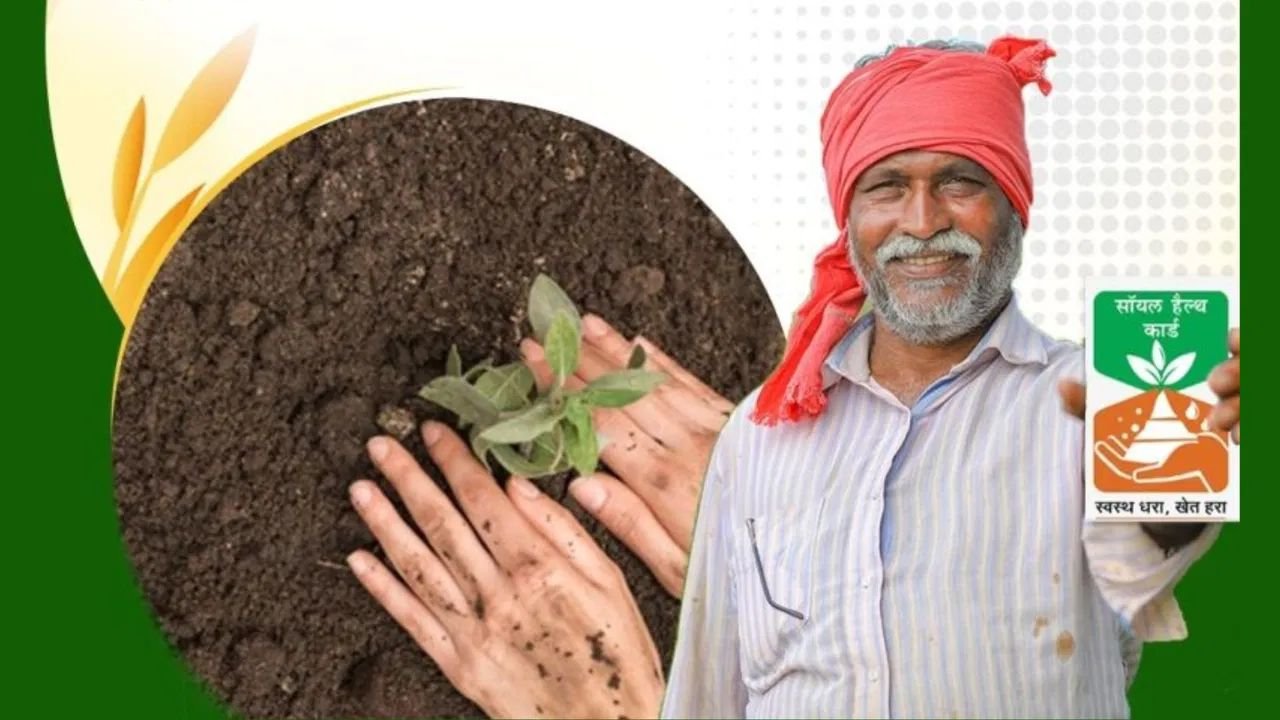Soil is very important for farming. Healthy soil helps grow better crops, gives more harvest, and helps farmers earn more money. In a bid to make farmers look after their soil, the Government of India initiated the Soil Health Scheme in 2015. This blueprint provides the farmers very useful information, like what their soil contains e.g. nutrients, its pH, and how much Organic matter. Armed with this knowledge, farmers are able to apply the appropriate level of fertilizers, and they will be in a position to select the most suitable crops to cultivate.
In this post, you will get basic information about what is Soil Health Card Scheme is, how to use it, its benefits, and the simplest method of getting the updates and checking information about your soil condition using the Soil Health Card Portal. It is time to get down to business!
What is the Soil Health Card Scheme?
The Soil Health Card Scheme was started by the Ministry of Agriculture and Farmers Welfare on February 19, 2015, to help farmers know their land better. As part of this system, soil is collected from farmers’ fields and verified to check important things like nitrogen, phosphorus, potassium, pH level, and organic matter.
After testing, the farmer gets a Soil Health. This card gives a clear report about the soil’s condition and gives advice on which fertilizers to use and how to take care of the soil to make it more fertile. The main goal is to help farmers grow more crops in a healthy way and avoid spending too much money on needless fertilizers. In many cases, organic fertilisers are recommended as a sustainable and cost-effective option that improves soil health over time.
The government plans to give a new soil health card every three years, so farmers always have up-to-date information about their soil.
Key Features of the Soil Health Card Scheme

- Nationwide coverage: The scheme covers all farmers across India.
- Detailed soil reports: Farmers receive soil test results, including nutrient deficiencies and pH levels.
- Periodic updates: Soil health are issued and updated every 3 years.
- Expert guidance: Farmers get expert advice on fertilizer use and soil management.
- Online access: Through the Soil Health Card Portal, farmers can check soil testing labs, track samples, and print their soil health.
Benefits of the Soil Health Card Scheme for Farmers
The scheme provides several important benefits that help farmers improve productivity and profitability.
1. Accurate Soil Monitoring:- The soil is tested regularly, providing farmers with up-to-date information about their land’s nutrient levels and health. This data allows farmers to make informed decisions, such as which crops to grow and what fertilizers to use.
2. Cost-Effective Farming:-By knowing exactly which nutrients are missing, farmers avoid overusing fertilizers. This reduces unnecessary expenses and prevents harmful environmental effects caused by excessive fertilizer application.
3. Expert Support:- Government experts guide farmers on correcting soil deficiencies, recommending the right fertilizer types and quantities.
4. Better Crop Selection:- Soil health cards suggest the best crops suited for the soil, helping farmers maximize yield and reduce crop failure risk.
5. Long-Term Soil Health:- Consistent monitoring and balanced fertilizer use help maintain and improve soil fertility, ensuring sustainable agriculture for future generations.
Who is Eligible for the Soil Health Card Scheme?
All farmers in India are eligible to apply for the Soil Health Scheme. There are no restrictions based on land size or farming type. Whether you are a small, marginal, or large-scale farmer, you can benefit from this scheme.
Required Documents:
- Aadhaar card (identity proof)
- Address proof
- Bank passbook copy (varies by state)
It is advisable to check with local agricultural offices for any additional documentation required.
How to Apply for the Soil Health Card Scheme?
Farmers can apply either offline or online depending on their convenience.
Offline Application Process:
- Visit the District Agriculture Officer (DAO) or Block Agriculture Officer (BAO) office.
- The officer will verify if the farmer’s area is included in the state’s Soil Health plan.
- An agent visits the farm to collect land and personal details, geo-tag the land, and collect soil samples.
- Samples are sent to laboratories for testing.
- After testing, the Soil Health with recommendations is issued to the farmer.
Online Application Process:

- Visit the official Soil Health Card Portal (soilhealth.dac.gov.in).
- Click on the “Login” Button – When the page first loads, you’ll see a Login button. Click on it.
- Look for the “Registration” Option – Inside the login screen, there should be an option like “User Registration” or “RAWE Registration”. Click on that.
- Fill the accurate details like User Type, State, District and more.
- Then go to the next page, Type username and password.
- Submit the form.
- After approval, farmers can download and print their Soil Health in Hindi or English.
How Does the Soil Health Card Scheme Improve Soil Fertility?
The main goal of the Soil Health Card Scheme is to keep the soil healthy and rich for agriculture. Here’s how the scheme helps farmers in simple ways:
Right Use of Fertilisers:- The soil test shows what nutrients are missing or too much in the soil. Farmers then get advice on how much fertilizer to use—so they don’t harm the soil by using too many chemicals.
Fertiliser Suggestions Made for Your Soil:- The card tells farmers the exact type and amount of fertilizer their soil needs. This saves money and keeps the soil in good shape.
Use of Natural Methods:- Farmers are encouraged to use natural fertilizers like compost and to follow farming methods like crop rotation. These help improve the soil’s natural strength.
Better Crop Planning:- The advice on the card helps farmers pick the best crops for their soil type. This means more crop production and less harm to the land.
Keeping Track of Soil Health:- Regular soil tests help farmers see how their soil changes over time. This helps them adjust their farming methods to keep the soil fertile.
Challenges and Solutions in Implementation
Despite the clear benefits, some challenges exist:
- Awareness Gap: Many farmers are still unaware of the scheme or how to use the Soil Health Card effectively.
- Infrastructure Issues: In some rural areas, soil testing labs and expert availability are limited.
- Delayed Delivery: Soil health cards may sometimes be delivered late, affecting timely farming decisions.
Solutions:
- Government awareness campaigns and farmer training programs.
- Expansion of soil testing facilities and expert training.
- Digital platforms and mobile apps to improve access and transparency.
Useful Table: Summary of Soil Health Card Scheme
| Feature | Details |
| Launched | February 19, 2015 |
| Implemented by | Ministry of Agriculture and Farmers Welfare |
| Soil Testing Frequency | Every 3 years |
| Soil Parameters Tested | pH, Nitrogen (N), Phosphorus (P), Potassium (K), Micronutrients, Organic Matter |
| Benefits | Better soil health, cost savings, improved yields |
| Application Modes | Offline (District/Block offices), Online (Soil Health Card Portal) |
| Eligibility | All Indian farmers |
| Documents Required | Aadhaar card, Address proof, Bank passbook (varies) |
| Portal Link | soilhealth.dac.gov.in |
How to Use the Soil Health Card Portal?
The Soil Health Card Portal is a digital platform that helps farmers access soil health services easily.
- Locate Testing Labs: Farmers can find nearby soil testing laboratories.
- Track Soil Sample Status: After submitting samples, farmers can check the testing progress
- Download Soil Health Card: Once the test is complete, the Soil Health Card can be downloaded and printed.
- Access Recommendations: Farmers can read fertilizer and crop suggestions based on their soil test results.
Using the portal makes soil health data more accessible and transparent, empowering farmers to take timely action.
Conclusion
The Soil Health Card Scheme is one of the steps that are required to make Indian farming better and more environmentally friendly. It provides farmers with practical and simple-to-comprehend information on their soil and makes them aware of the correct method of utilization of fertilizers. The result is improved soil and crops and a reduction in the amount of money spent on unnecessary chemicals.
The scheme allows farmers to produce more and save money as well as nature, because the scheme does not encourage the usage of too many chemical products.
This is an opportunity that you should not miss in case you are a farmer. Register yourself under the Soil Health Card Scheme and follow up on your reports and updates on your soil through the online portal.
Read Our More Blogs:- My Best Hours Report: The Ultimate Tool for Time Management & Productivity



